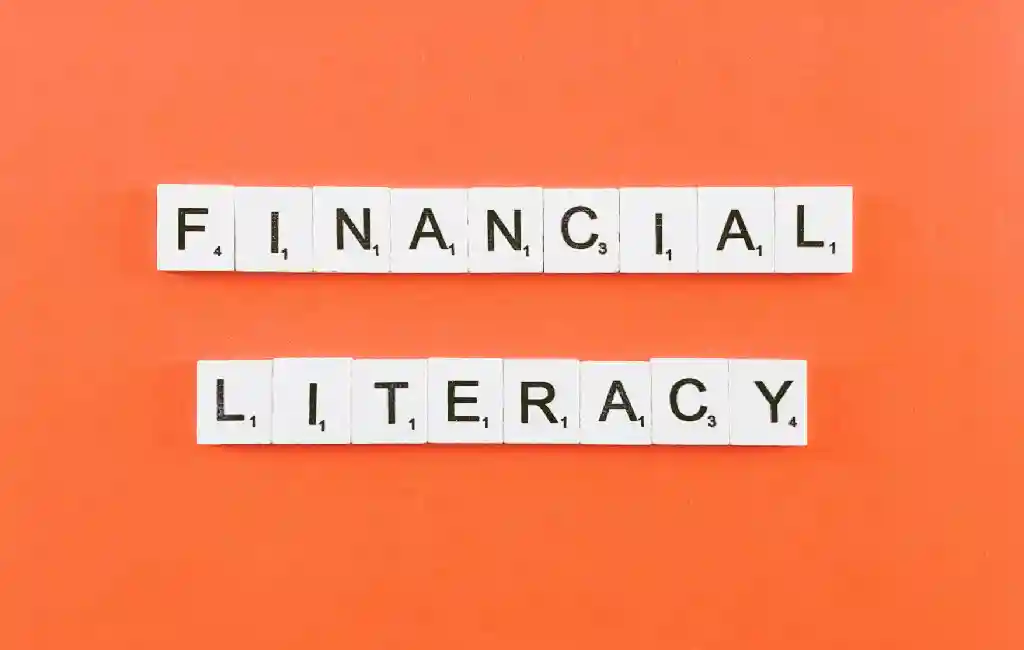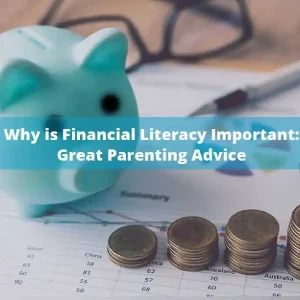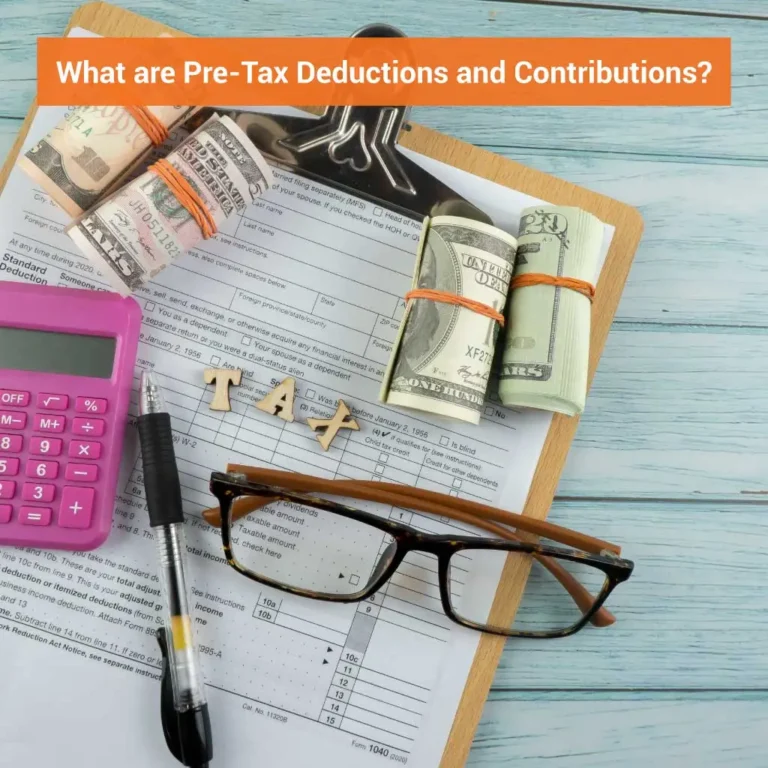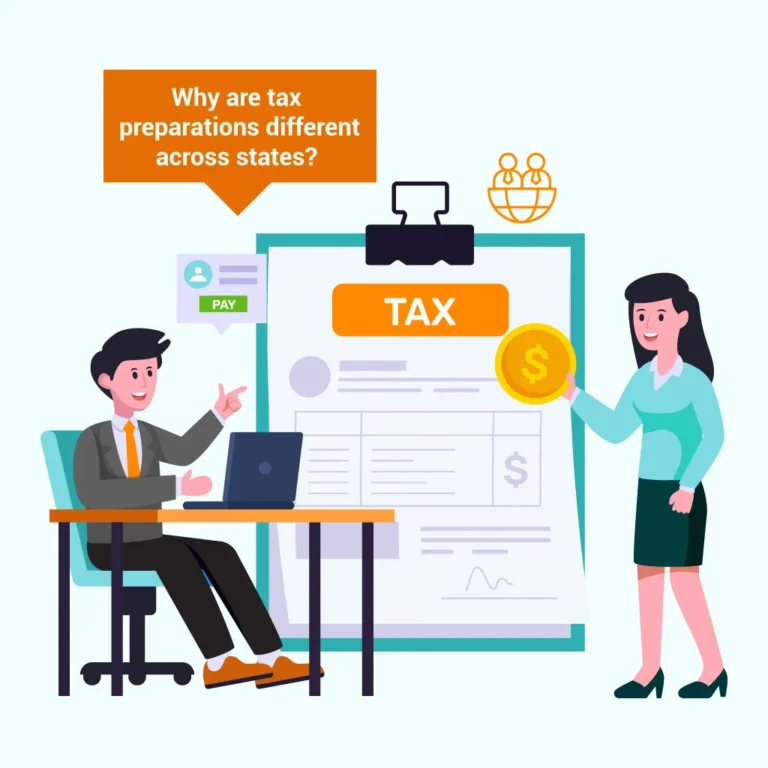In the complex financial landscape of the modern world, the importance of financial literacy cannot be overstated. Financial literacy, the understanding of how money works, is a vital skill everyone should have, regardless of age, background, or career. With economic crises and the rising cost of living, a good understanding of financial concepts is crucial in securing one’s future.
This article aims to delve into the concept of financial literacy, exploring why it is important and how it impacts our lives on various levels. From planning for retirement to helping our children understand money, financial literacy shapes our present actions and future outcomes. Read the article to discover why is financial literacy important and how it impacts your life.

The Definition of Financial Literacy
To appreciate the importance of financial literacy, it’s crucial first to understand what it entails. Financial literacy isn’t merely about making money—it’s a comprehensive understanding of how money works in the world.
The field of financial literacy includes the in-depth understanding and skillful application of a variety of financial aptitudes, including the artistry of shrewdly managing one’s own funds, outlining exact budgets, and starting investing initiatives. This topic delves into the area of wise decision-making, particularly with regard to various aspects of personal finance, such as the complexities of real estate, the complexities of insurance, the complexities of investing, the nuances of prudent saving (particularly for academic pursuits), the complexities of tax planning, and the perplexing landscape of retirement planning.
The essence of financial literacy is not only knowledge of finance but also the ability to articulate these concepts effectively and make decisions based on this knowledge. Understanding how a checking account works, what using a credit card really means, and how to avoid debt are all part of it. In the broader sense, it involves the comprehension of the skills that will help a person make sound financial decisions.
As you embark on this journey of understanding and gaining financial literacy, keep in mind that it’s a lifelong process. The financial decisions you make now will impact your future financial health and stability. Thus, understanding the definition of financial literacy is your first step toward financial independence and stability.
Why is Financial Literacy Important

Financial literacy is not just an individual requirement, but it’s becoming a necessity in our society. The importance of financial literacy extends beyond mere dollars and cents, influencing our decision-making process, financial stability, and overall well-being.
At the core, financial literacy provides individuals with tools for effective decision-making. With this knowledge, people are able to manage their money wisely, make informed decisions about saving, investment, and borrowing, and ultimately ensure their financial stability. It helps individuals to understand how to save, invest, and manage their money and prevent falling into debt traps.
Financial literacy is also important for closing the wealth gap and promoting economic equality. Understanding how to handle personal finances, navigate the banking system, and make sound investment decisions allows individuals from all backgrounds to build wealth and financial security.
Furthermore, being financially literate is increasingly important in the age of digital transactions and complex financial products. Understanding these domains is crucial with the rise of online banking, cryptocurrencies, and digital investments.
Finally, financial literacy isn’t just important for individuals—it’s crucial for our economy. A financially literate society is more likely to have individuals who save and invest wisely, driving economic growth.
The Benefits of Financial Literacy
- Better Budgeting: Individuals can create and manage budgets effectively with financial literacy. This skill is critical to track income and expenses and ensure financial stability.
- Informed Investment Decisions: Financially literate individuals are better equipped to understand different investment opportunities and risks, leading to more informed and potentially profitable decisions.
- Reduced Financial Stress: Understanding personal finances and having a handle on debt and savings can significantly reduce financial stress and uncertainty.
- Debt Management: Knowledge of interest rates, loans, and credit scores can help individuals avoid high levels of debt or effectively manage and pay off existing debts.
- Future Planning: Financial literacy helps people to understand long-term planning concepts, such as retirement plans, pensions, and other benefits, allowing them to secure their financial future.
- Financial Independence: Financial literacy is a crucial step towards financial independence, giving individuals the confidence to manage their own money and make independent financial decisions.
- Economic Impact: On a broader scale, a financially literate population can contribute positively to the economy. Increased savings and investment can lead to economic growth, while a decrease in debt can lead to a more stable economic environment.

In essence, the benefits of financial literacy are extensive, touching on every aspect of individual and societal economic health. The more financially literate people are, the more likely they are to attain financial success and contribute to a thriving economy.
The Importance of Financial Education
Financial education is an important aspect of life that is often overlooked. These courses create a basis for comprehending financial issues and thus encourage informed financial choices. Whether we consider adults, teens, or even younger students, financial education is a valuable tool for everyone.
Financial education provides the necessary knowledge and skills to navigate the complex financial landscape of the 21st century. Understanding finances and learning how to budget, invest, and save effectively are all part of a strong financial education.
These skills enable individuals to plan for their future, mitigate financial risks, and achieve their financial goals. Financial education is vital for enhancing financial literacy and fostering economic security.
Financial Literacy Programs for Adults
Adult-focused financial literacy programs are crucial for providing the necessary skills for sound financial planning. These programs cover topics like mortgage management, retirement planning, tax planning, and investment strategies, empowering adults to manage their financial responsibilities effectively
Financial Literacy Programs for Youth
Youth-centered financial literacy programs are the building blocks for a financially secure future. They introduce basic concepts like savings, budgeting, and the value of money, providing the youth with a strong foundation for future financial decision-making.
Financial Literacy for Teens
Financial literacy programs for teens play a critical role in the transition to adulthood. By teaching topics like credit, loans, and employment income, these programs prepare teens for real-world financial responsibilities.
Financial Literacy for College Students
Why is Financial Literacy Important? It’s especially important for college students because they often manage their finances independently for the first time. This group’s programs frequently cover student loans, credit cards, budgeting, and basic investing, preparing students to manage their newfound financial independence.
Financial Literacy Programs for School Students
Starting financial education early sets the stage for future financial stability. For school students, financial literacy programs often introduce basic concepts such as saving, spending, and earning, using fun and engaging methods to capture young learners’ interest.
How to Improve Financial Literacy
Improving financial literacy can seem like a daunting task, but the journey can be made manageable with the right approach. Individuals can significantly enhance their financial literacy by investing time in education, practice, and planning.
Financial Literacy for Beginners
For beginners, the first step to improving financial literacy is starting with the basics. Understanding simple concepts such as saving, budgeting, and managing debt is crucial. Using budgeting tools and apps can be helpful in this initial phase. Remember, it’s okay not to know everything—learning is a process, and it’s okay to start small.
Financial Literacy 101
Once you’ve grasped the basics, delve into more complex areas such as investments, insurance, and taxes. Reading financial books, attending workshops, and using online resources can be great ways to learn these concepts. Also, don’t hesitate to ask questions or seek advice from financial advisors or educated friends and family.
Financial Future
To improve financial literacy in terms of your financial future, focus on long-term financial planning. Understanding retirement plans, long-term investments, and estate planning are critical in this regard. Also, continually keeping yourself updated with financial news and trends will enable you to make informed decisions.
The Parental Role: Teaching Financial Literacy to the Next Generation

Parents play a critical role in shaping their children’s understanding of financial literacy. This responsibility extends beyond meeting their immediate needs to preparing them for future financial independence. Because parents are frequently the first source of financial information for their children, their role in money education is critical.
Parents can introduce basic financial concepts such as earning, saving, and spending from a young age. As children grow older, more complex topics like investing, credit, and taxes can be introduced. Encouraging open discussions about money and setting a good financial example are also crucial elements of this education.
Moreover, incorporating financial lessons into everyday activities can make learning about money both practical and relatable. By instilling these values early on, parents can equip their children with the financial skills they need to navigate the world confidently and responsibly.
Understanding the Financial System
The financial system is a complex network that influences nearly every aspect of our lives. Grasping its functioning can seem overwhelming, but it’s integral to financial literacy.
The financial system comprises a set of institutions (like banks, insurance companies, and investment funds), markets (such as stock markets, bond markets, and money markets), and financial instruments (stocks, bonds, and derivatives) that facilitate the flow of funds from savers to borrowers. It plays a vital role in the economy, facilitating savings, providing funds for investment, ensuring liquidity, and managing risks.
To comprehend the financial system, it’s crucial to understand its main components – financial institutions, financial markets, and financial instruments. Additionally, understanding how these components interact with each other and how financial policies and regulations affect them can provide a holistic view of the financial system. By understanding the financial system, individuals can better understand the economic environment in which they make their financial decisions.

Securing the Golden Years: Planning for Retirement
A key component of financial literacy is retirement planning, which involves carefully outlining desirable financial milestones for the phase after employment and defining necessary actions to achieve those goals.
Exploring retirement planning goes beyond merely accumulating money; it requires a thorough understanding of various investment opportunities and strategies, social security benefits, pension plans, and other financial factors that are intricately linked to the retirement environment.
At the center of this maze is the crucial role that financial literacy plays in enabling people to make wise and knowledgeable decisions about their retirement plans, laying the groundwork for stability and prosperity in the years to come.
Retirement should be a time of rest and recreation, free of financial concerns. It is possible with comprehensive retirement planning and financial literacy. Start planning today for a secure and comfortable retirement tomorrow.
Charting Your Financial Path: Resources for Financial Education
As with any educational journey, financial education benefits from a wealth of resources. From books to online courses and workshops, these tools can enrich your understanding of financial concepts, providing you with the knowledge needed to make sound financial decisions.



Books are a great starting point for financial education. Renowned titles like “Rich Dad, Poor Dad” by Robert Kiyosaki, “The Total Money Makeover” by Dave Ramsey, and “The Intelligent Investor” by Benjamin Graham offer valuable insights into personal finance and investment.



Online platforms offer a plethora of resources, too. Websites like Investopedia, Khan Academy, and Coursera provide comprehensive guides, courses, and video tutorials on various financial topics.



Blogs and podcasts, such as “The Money Girl Podcast” or “Mr. Money Mustache” can also provide up-to-date and easily digestible financial advice. Along with of course, our very own podcast, “Money with Mak & G”.
Additionally, local community centers and libraries often offer free or low-cost workshops and seminars on financial literacy. And don’t forget about financial advisors and planners, who can provide personalized advice and guidance based on your specific needs and goals.
Lastly, financial apps and tools can also help you understand and manage your finances. Tools like Mint for budgeting, Personal Capital for wealth management, or Robinhood for investment are popular choices.
The Importance of Ongoing Financial Education
The financial landscape is constantly changing, with new investment options, financial products, technologies, and regulations continually emerging. Therefore, understanding these changes is crucial to effective financial decision-making. Ongoing learning helps individuals stay updated, adapt to new financial scenarios, and make informed decisions.
Continuous learning about finances also allows individuals to refine their financial strategies as their life circumstances change. For instance, the financial decisions one makes as a young adult will likely be different from those made when approaching retirement.
Moreover, ongoing financial education fosters a culture of financial awareness and accountability, encouraging informed financial behavior. Financial literacy is not a one-time achievement but a lifelong pursuit, requiring consistent learning and adaptation. The more you learn, the better you can navigate the financial world.
The Unquestionable Importance of Financial Literacy
Financial literacy is not just about understanding money—it’s about making informed decisions that lead to financial stability, security, and freedom. Whether it’s budgeting, investing, or planning for retirement, every aspect of our financial lives is influenced by our level of financial literacy. Understanding financial concepts empowers us to navigate the complexities of the financial world with confidence and make decisions that align with our goals and values.
In this constantly evolving financial landscape, investing in our financial education is a necessity, not a luxury. After all, the importance of financial literacy in our lives cannot be overstated.

Frequently Asked Questions (FAQ)
What exactly is financial literacy?
Financial literacy is the ability to understand and use a variety of financial skills, including the art of budgeting, the complexity of investing, and the management of one’s personal finances. In order to make wise financial decisions, one must be able to deftly navigate the landscape of financial resources in both their personal and professional lives.
What are the benefits of financial literacy?
Do you know why is Financial Literacy Important? Because it provides us the fundamental knowledge we need to manage our money effectively. Understanding how to create a budget, invest for future needs and goals, and avoid financial risks and scams are all part of this.
What steps can I take to improve my financial literacy?
Improving financial literacy entails learning about and practicing various financial concepts. Financial books, online courses, financial workshops, and financial advisors are all options. Continuous learning and keeping up with financial trends are essential for improving financial literacy.
What are the consequences of financial illiteracy?
Financial illiteracy can lead to poor financial decisions, resulting in excessive debt, lack of savings, poor investment choices, and financial insecurity. It can also lead to a higher likelihood of falling victim to financial fraud or scams.
What effect will financial literacy have on my future?
By enabling you to make informed financial decisions, financial literacy can have a significant impact on your future. It enables you to effectively plan for retirement, handle emergencies, avoid debt, and achieve your financial objectives. Financial literacy leads to financial stability, which provides you with financial freedom and peace of mind.









